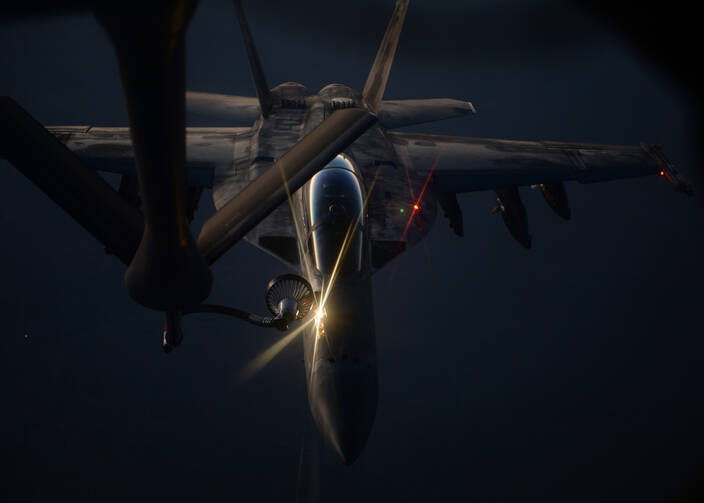President Obama laid out a strong case for why ISIL (the Islamic State in the Levant) must be defanged in his address to the nation yesterday. The president grounded U.S. action in humanitarian concerns and referred to the many horrific actions the Sunni extremist group has taken—massacring captive soldiers, killing children, raping and enslaving women, beheading hostages—as he sought to rally Americans for military strikes against ISIL. Even as he did so, he was at pains to clarify that this war will be unlike the wars in Iraq and Afghanistan. It will not involve U.S. boots on the ground but will depend on American firepower as the United States, in concert with allies, works to degrade and destroy ISIL.
It was a short speech and an effective one, I thought, but it left some key questions unanswered. What have our allies signed on to? How will we measure success, and when will we know when the mission is accomplished? What happens if ISIL is not destroyed and ground troops become necessary?
Deepening U.S. involvement in Syria’s civil war by striking ISIL in Syria while increasing funding for other members of the Syrian opposition appears particularly problematic. As with the $500 million appropriated a few months ago for Syria’s “moderate” rebels, the idea that one can arm some rebel factions and not have arms end up in other factions’ hands (or not have the factions join in common cause) depends on wishful thinking. The United States remains adamant that Syrian President Assad must go, but sending more arms to one of his opponents while attacking another may just end up worsening the conflagration. The enemy of one’s enemy is one’s friend, and shifting alliances and coalitions are to be expected on both our side and those of rebel groups.
The president comes to this operation a reluctant warrior. He was elected to end America’s wars in Iraq and Afghanistan, and this new war is already being called The Third Iraq War. ISIL’s rapid and dramatic conquest of territory in Iraq, its brutal measures and the political consequences here at home of inaction have forced Obama’s hand. The videotaped beheadings of two American journalists have created a groundswell of support for U.S. military action against ISIL.
The case for action against ISIL is stronger than why Americans should lead it, however. ISIL is a menace to the countries and peoples in the region, not to the United States. Its primary target is Shiites, not Americans, and though Obama called ISIL a threat it is not so directly. Will the American public six months from now still support the war against ISIL, or does this operation, so carefully delimited at the outset, seem likely to become another engagement that the United States limps away from with less than satisfactory results? The current mess in the Middle East is to a large extent of the United States’ own making. Will this new war be different?








